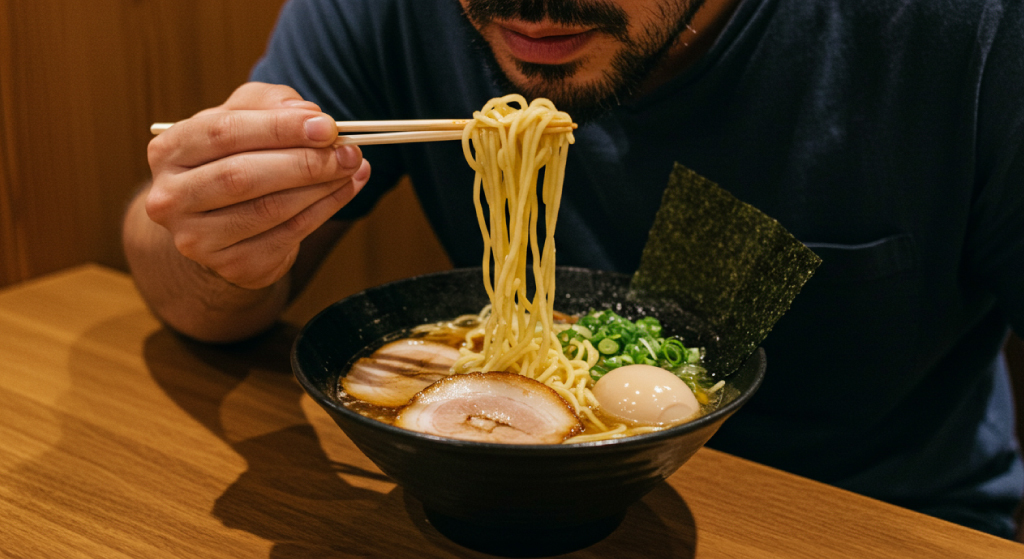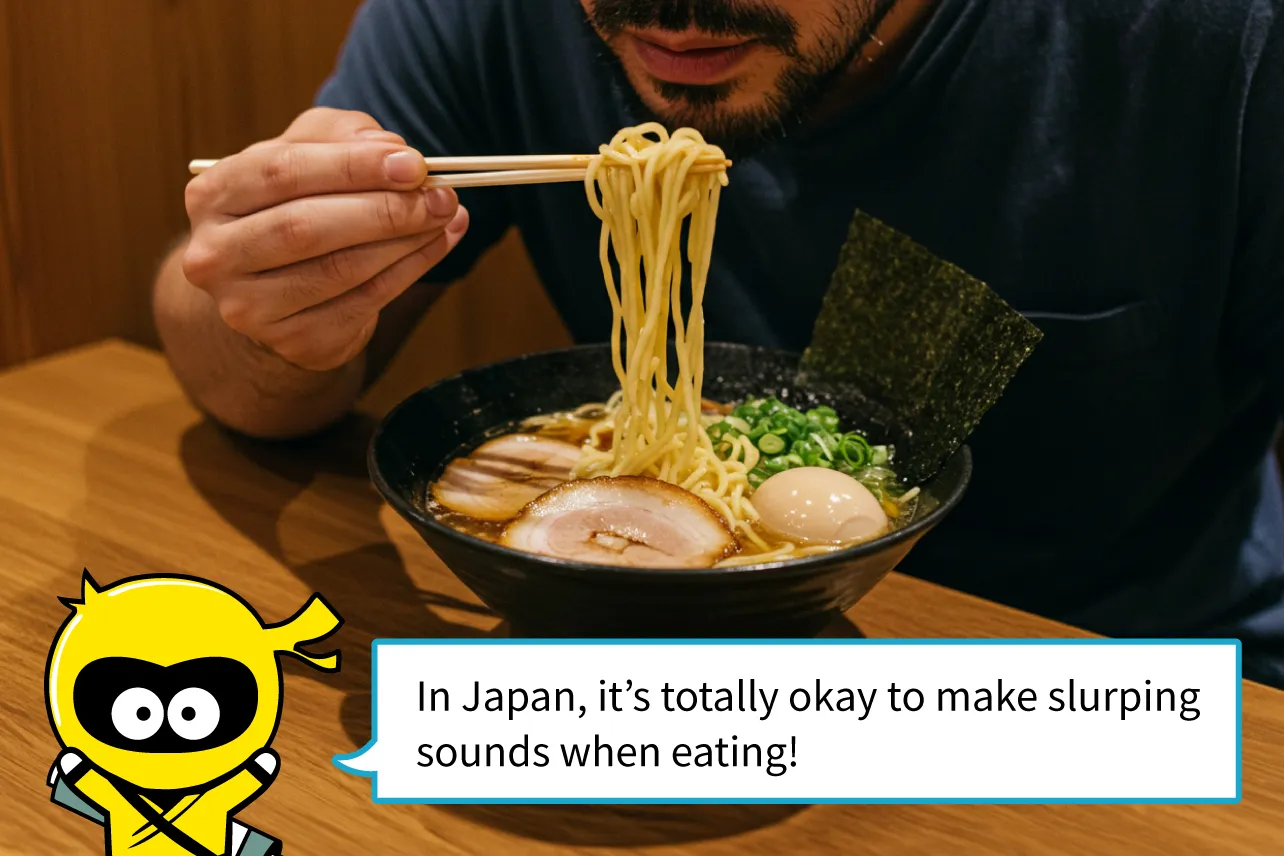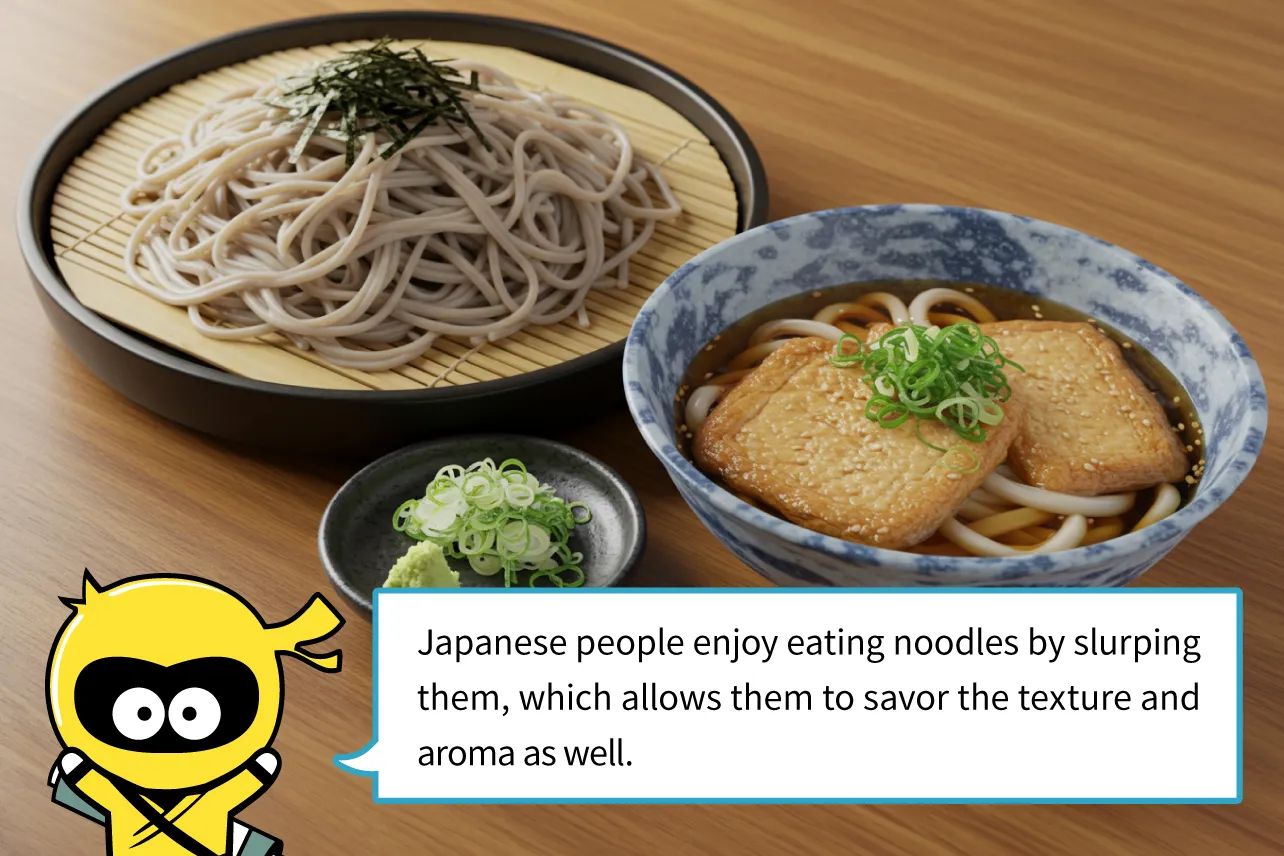

Why Do People Slurp Ramen in Japan? Understanding the Culture and History
The practice of slurping noodles in Japan dates back to the Edo period when soba became a popular fast food among the common people. Since soba was served hot, slurping allowed diners to enjoy the noodles and broth simultaneously, enhancing the flavors. This practical method of eating quickly and efficiently was later adopted for ramen, another beloved noodle dish.
Is Slurping Noodles Considered Bad Manners? Japanese Perspectives vs. Foreign Misconceptions


In many Western cultures, making noise while eating is seen as impolite. However, in Japan, slurping noodles is a sign of enjoyment and appreciation for the meal. Most Japanese people are accustomed to the sound and don’t find it offensive. That said, some foreigners might perceive it as unhygienic or noisy, leading to misunderstandings. Recognizing these cultural differences is key to appreciating the practice.
The Proper Way to Eat Ramen: Is It Okay to Slurp?
In ramen shops, it’s customary to first taste the broth, then slurp the noodles. Slurping brings air into the mouth, enhancing the aroma and flavor of the noodles and broth. While slurping is acceptable, it’s important to do so moderately to avoid disturbing others. Being mindful of your surroundings ensures a pleasant dining experience for everyone.
Pros and Cons of Slurping Ramen
Pros
- Slurping helps cool down hot noodles, making them easier to eat.
- It enhances the aroma and flavor by mixing air with the noodles and broth.
- Slurping allows for a harmonious blend of noodles and soup, enriching the taste.
Cons
- Some non-Japanese individuals may find the sound unpleasant.
- Improper slurping can lead to splattering, potentially staining clothes or the surroundings.
Does Slurping Affect the Taste? Unveiling the Secrets of Ramen’s Deliciousness
Slurping noodles introduces air, which helps release the volatile compounds in the broth, enhancing its aroma and flavor. Additionally, the act of slurping can slightly cool the noodles, making them more palatable. This combination of aroma enhancement and temperature adjustment contributes to a more enjoyable ramen experience.
The Slurping Culture Beyond Ramen: Differences with Soba and Udon


Soba, traditionally designed to be slurped, has a different texture and thickness compared to ramen, affecting the sound produced. Cold soba, like zaru soba, is often slurped to fully enjoy its dipping sauce. Udon, being thicker and chewier, is also commonly slurped, especially when served hot. Each noodle type offers a unique slurping experience, reflecting Japan’s diverse noodle culture.
Embracing Japanese Ramen Culture: Enjoying It to the Fullest
Ramen is more than just a meal in Japan; it’s a cultural experience that combines broth, noodles, and toppings into a harmonious dish. Slurping is not merely about making noise but is an integral part of savoring the flavors and aromas. While it might feel unfamiliar at first, embracing this practice allows you to fully appreciate the depth and richness of Japanese ramen culture.




